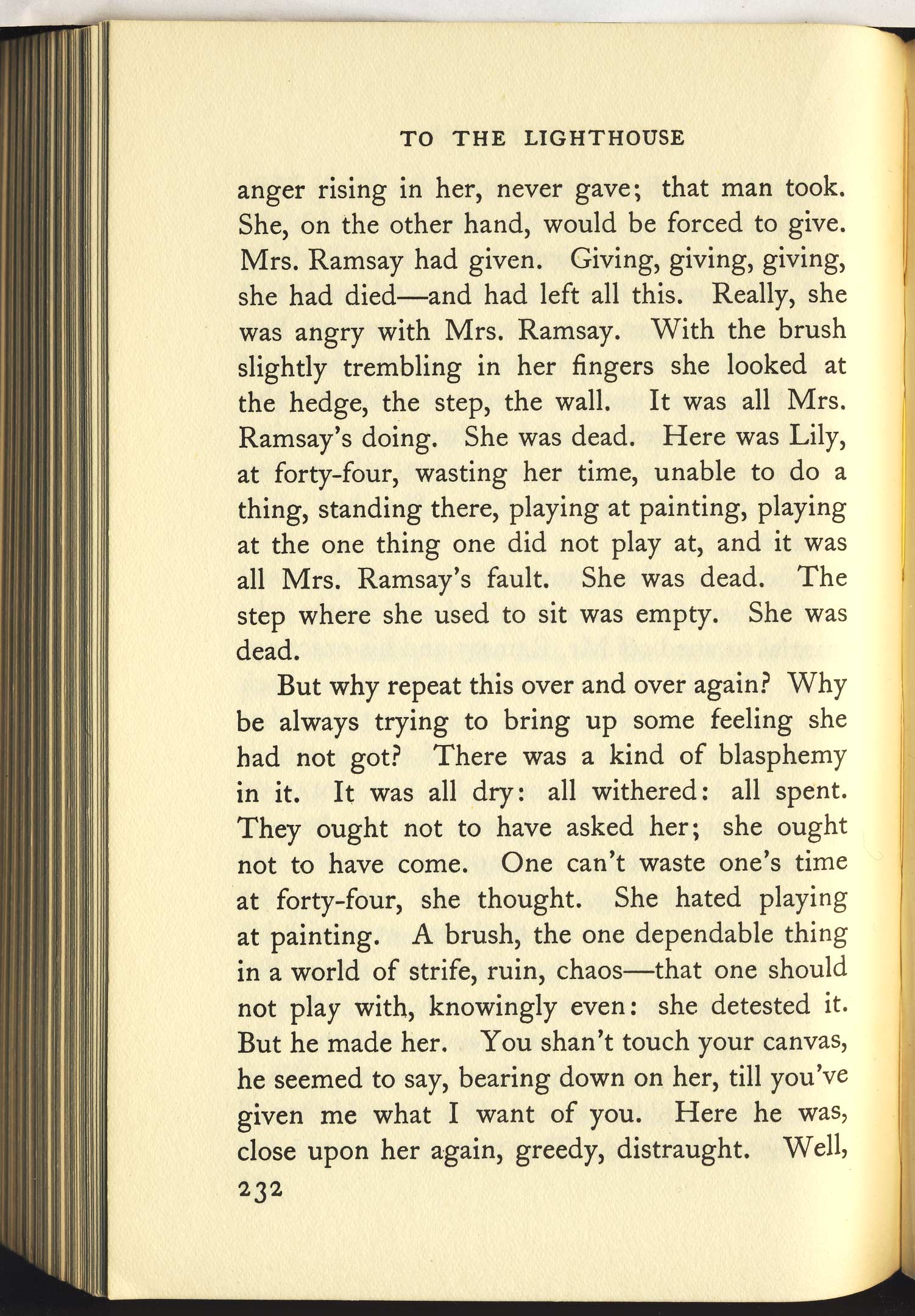
TO THE LIGHTHOUSEanger rising in her, never gave; that man took.She, on the other hand, would be forced to give.Mrs. Ramsay had given. Giving, giving, giving,she had died—and had left all this. Really, shewas angry with Mrs. Ramsay. With the brushslightly trembling in her fingers she looked atthe hedge, the step, the wall. It was all Mrs.Ramsay’s doing. She was dead. Here was Lily,at forty-four, wasting her time, unable to do athing, standing there, playing at painting, playingat the one thing one did not play at, and it wasall Mrs. Ramsay’s fault. She was dead. Thestep where she used to sit was empty. She wasdead.
But why repeat this over and over again? Whybe always trying to bring up some feeling shehad not got? There was a kind of blasphemyin it. It was all dry: all withered: all spent.They ought not to have asked her; she oughtnot to have come. One can’t waste one’s timeat forty—four, she thought. She hated playingat painting. A brush, the one dependable thingin a world of strife, ruin, chaos——that one shouldnot play with, knowingly even: she detested it.But he made her. You shan’t touch your canvas,he seemed to say, bearing down on her, till you’v€given me what I want of you. Here he was,close upon her a-gain, greedy, distraught. Well,2 32









